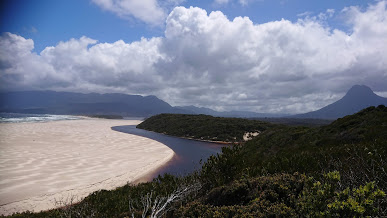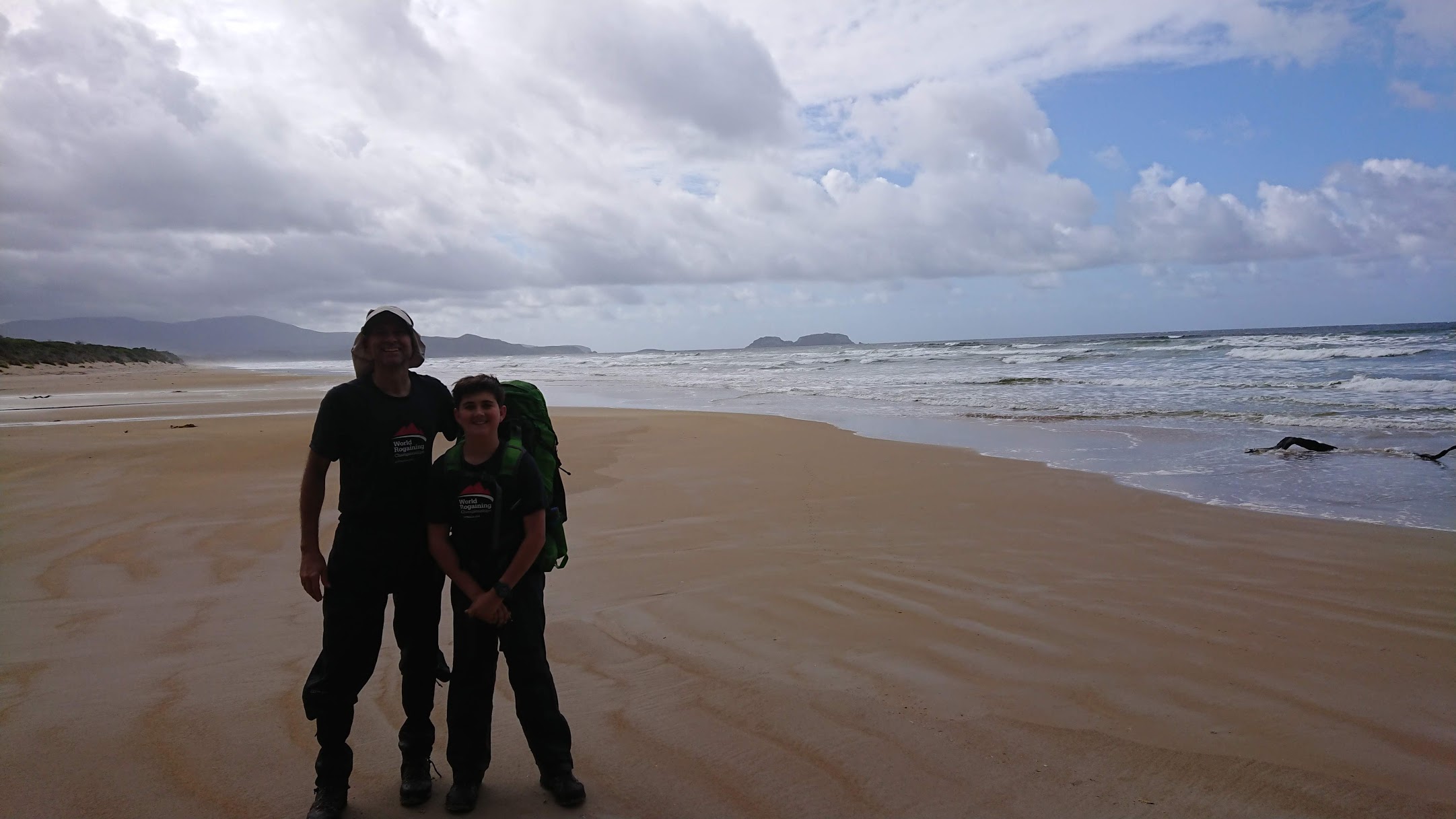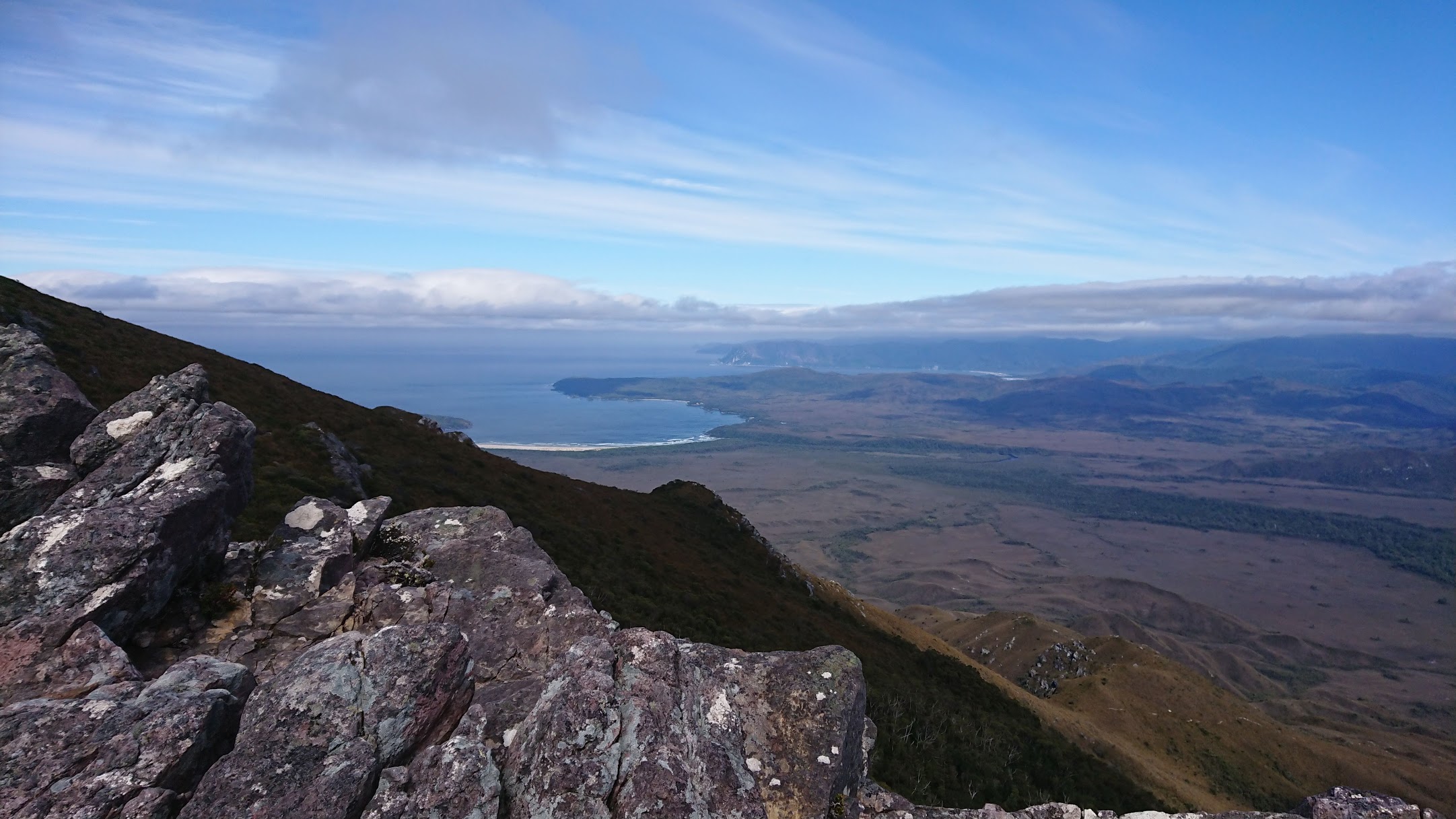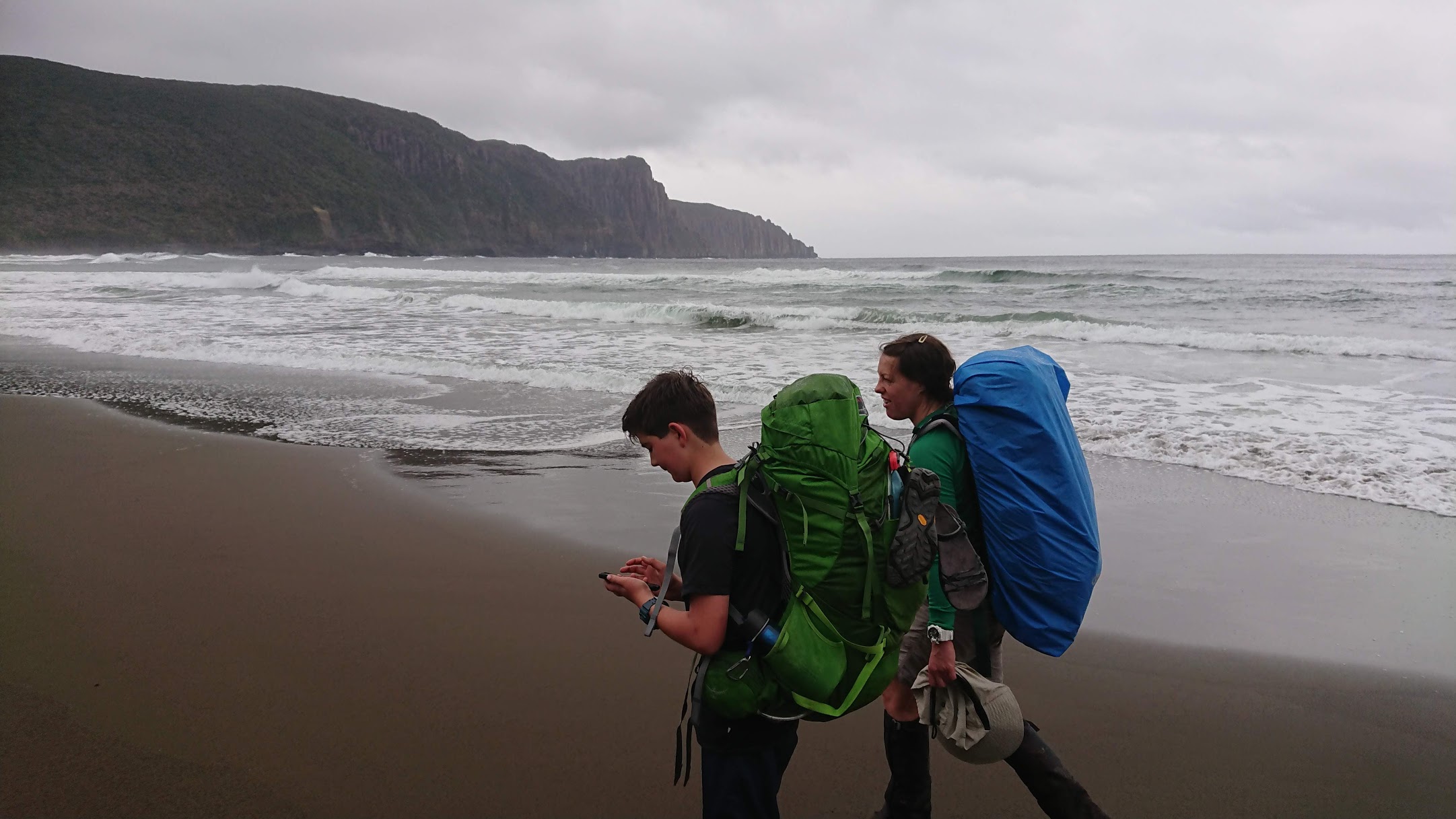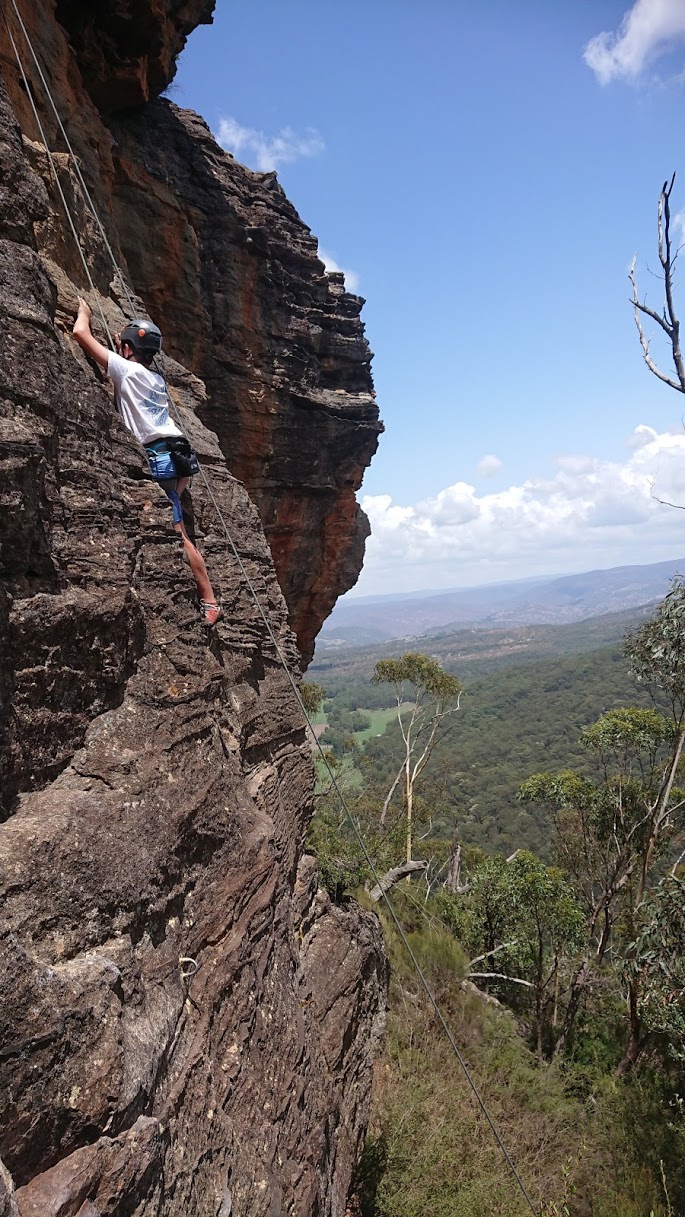Hiking, bushwalking and rambling – it’s so much more than a view!
Do you love the outdoors? Fresh air, sunshine, wind, rain, wildlife and nature… Blissful! We don’t know about you, but we absolutely love to get outside and immerse ourselves in the natural environment. Just you, a backpack, some energy food, a water bottle and for the organised ones, a compass and a map. Oh, and don’t forget those hiking boots.
Prion Beach and Precipitous Bluff, South Coast Track, Tasmania (Dec 2019)
If you’ve never considered hiking before, but like the thought of immersing yourself in nature while getting some great exercise, then maybe you need to. With technology leading the way these days, it’s easy to get bogged down with binging on TV shows and playing your favourite video games after a long week at work. We’ve all felt it before, the urge to just put our feet up for the weekend and chill. That’s okay every now and then, but we as humans need to move more, and hiking is a great way to do that. Other than a few initial costs with getting yourself a decent pair of walking boots and a backpack for all of your supplies, it’s basically a free activity. And, it comes with a heap of benefits. Read on to find out more.
The advantages
Hiking is primeval. We used to walk from food source to food source, building muscle mass and exposing our immune systems to pathogens on the way. Hence, it's great for our neurocognitive immune complex, which means it's good for our overall well-being. It's also a great exercise in bonding, parenting and mateship.
South Coast Track, Tasmania (Dec 2019)
The benefits of hiking include:
• Increased muscle strength: Hiking is essentially walking, but tends to involve walking over different terrain which may range from flat forest pathways to rocky mountainous passes. Either way, getting yourself out and about is going to get those trunk and lower limb muscles engaged and pumping. This type of exercise will help to improve strength in your glutes, quads, hamstrings, calves and trunk muscles which will provide stability to your skeleton and joints, and help keep away potential joint problems like osteoarthritis.
• Improved cardiovascular health: The planet is becoming more obese as each year passes, which is seeing an increase in heart-related disease. A great reason to try hiking as it could help you to control or lose weight, reducing stress on the cardiovascular system. Regular exercise of this type has been shown to lower blood pressure and blood-sugar levels, reducing the risk of developing heart disease and conditions like type-2 diabetes. Challenging yourself to walk up and down difficult terrain is a fantastic way to improve your aerobic fitness and keep everything in check.
• Improved core stability and balance: Walking over rocky and uneven terrain is a great way to challenge those core stabilising muscles and work at improving your balance. Walking on flat, even surfaces doesn’t provide the body with that side to side component of movement that walking on an uneven surface can do.
• Improved mental well-being: There is evidence that spending time in green, natural environments away from urban jungles can help to reduce stress levels in people. The outdoor, rural landscape can provide you with a sense of peace and quietness, calming the mind of all of life’s worries. This is something you just don’t realise when you are constantly in the hustle and bustle of city life where noise and pollution are rife throughout.
• A chance to socialise: Humans are social beings. We like to engage with others (there are always exceptions to this rule!) and be with them to really enjoy the benefits of living. If family time is short mid-week because of work, school and other engagements, hiking gives you the perfect opportunity to be with the ones you love. You can talk, move and have fun together in a beautiful environment. What else do you need?!
Ironbound Range, South Coast Track, Tasmania. (Dec 2019)
Suggestions for hiking
If we’ve said enough to get you on board (hooray!), there are a few little pointers we want to bring to your attention before you get going.
1. Get equipped: Ensure you get fitted with a good pair of walking boots, grab a backpack and if you are just starting out, a hiking stick or pole may be of benefit to help you through trickier terrain (especially if you have any knee issues).
2. Pack water and food: Have enough with you to keep your energy and hydration levels up throughout your hike.
3. Find a route that fits your abilities: If you are just beginning, we suggest you don’t go straight for the most mountainous route out there. Try an easy track or nature reserve walk before attempting K2 or Everest (you need extra training for these by the way!).
4. Take a friend or family member: It’s sometimes good to get out on your own for ‘you’ time, but hiking is great when done with someone else. Having more than one person means that if you get injured or help is needed, you are not stranded alone with nowhere to turn to. Keeping in mind, some hikes may be in areas with little cellular reception. Invest in some kind of emergency beacon device eg Garmin InReach
5. Let someone know you are going: It is safer to tell someone at home or a neighbour that you are heading out. The outdoors is sometimes unpredictable so letting someone know where you are going and when to expect you back is another safety measure worth having in place.
South Coast Track, Tasmanai (Dec 2019)
So what are you waiting for? Get out there and really enjoy what the world has to offer. We live on a beautiful planet, so make sure you get to experience it and improve your health whilst doing so.
Ready. Set. HIKE! (You can reward yourself with an episode of your favourite show when you get back!)
........and if this isn't enough, later you can take on canyoning and rock climbing
Blue Mountains, NSW, Australia (Jan 2020)
Uploaded : 23 February 2020




